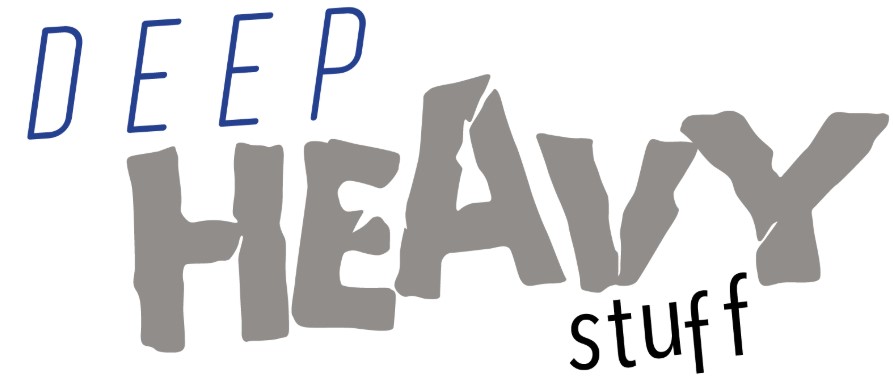I hear this all the time …
“Don, I was a bad parent because I made so many
mistakes.”
Well, you are a better parent than you think.
The fact that you still fret over this and are concerned
about your children, no matter their age, means you cared about your kids then,
and you still care about them now.
That alone makes you a good parent.
But what about those bad decisions?
Well, in most situations in life, we accept the fact that
we will make mistakes – that we are not perfect. However, we expect to be
perfect parents - to be flawless in our choices. To have the superhuman power
to know and control the outcome of every decision we make. Buy you are not a
perfect person - so stop believing you should
be a perfect parent. You aren’t – no one is.
But you are a better parent than you think. You have made
many more good decisions than bad ones regarding your children. The problem is that
we remember all the bad choices we make because of the consequences they
created. And we never expected, nor wanted, those harmful, hurtful, outcomes. We
don’t remember the right choices we made for our kids because they produced the
good outcomes we were hoping for. Those excellent decisions tend to get erased
from memory, but they greatly benefited our children.
Some of those bad decisions you made weren’t even poor
decisions. They were right decisions that resulted in adverse outcomes. You
make the best decisions you can at the time with the best information you have.
You are not all-knowing. You are not perfect. But if you make the choices you
think will benefit your kid, you are a good parent.
Of course, there are those tough decisions you make where
there is no good alternative – the lesser of two evils. Again, you tend to
remember the bad outcome, which is almost assured in this situation, but you
forget that you made what you considered the best choice available.
If you care about your children, if you love your children
enough to try to make the best decisions for them, then you are a good parent.
You are not going to make all the right choices. You are not and were not going
to be the perfect parent.
Therefore: STOP SECOND GUESSING EVERY CHOICE YOU MADE AS A
PARENT! IF YOU DID THE BEST YOU COULD UNDER THE CIRCUMSTANCES, YOU WERE A GOOD
PARENT.
And it’s harmful to beat yourself up over decisions made in
the past on things you cannot change. It’s much better to focus your attention
on the choices you are making now, which impact things you can change.
Even If Your
Decisions Were Good …
“But Don, my children didn’t turn out as
planned.”
Well, of course not. Because they seldom do. Although some do
miss the mark more than others.
But this is not your fault.
Parenting is one of the toughest challenges there is
because the outcome is so highly uncertain. Parenting is even more complicated
than those mathematical equations it takes geniuses months to solve.
The parenting calculation takes at least eighteen years to
finish and the equation frequently changes over time. Just about the time you
master how to parent a preteen – boom! You must parent a teenager, and your
math problem just turned from algebra to calculus.
But you can’t really “solve” this problem, can you? You can
put all the right numbers in, do all the right things, and still not get the
desired result.
Because your job is not to assure your child’s success in
life, it is to prepare your child to have the opportunity for success in life.
Because at some point, your children make their own decisions, which are
typically different than yours. And they must live with the outcomes.
The choices your children make do not reflect poorly on
you, especially if they contradict everything you tried to teach them. If
things in your adult children’s life take a terrible turn, you have not failed
as a parent; many times, your children just make poor decisions. And again,
sometimes they were the right decisions but with a bad outcome.
I have several friends who are great people and were great
parents. However, they had children who made extremely poor choices after they became
adults. These children even became estranged from these excellent parents for a
period, for no logical reason at all. I have other friends whose daughter died
of an opioid overdose in her 20’s. Another couple’s son committed suicide. Were
they bad parents? No, these are good people, and they were all excellent
parents, and none of these outcomes are in any way their fault.
You can do everything - well, almost everything, right -
and still not have things turn out well. You can provide as much training as
possible for your children to make good choices, but you can’t make those choices
for them. Your adult child’s success, or lack of it, is not a reflection of
you.
And good parents will want to continue to parent their
adult children because, of course, they are good parents and care about the
welfare of their kids no matter their age. But you must resist this temptation.
We must at some point, stop parenting and just start advising them. Because it
is their choice where to work, where to live, how to raise their kids, etc.
Their decisions, not yours. (mothers-in-law – I’m talking to you)
So: STOP BLAMING YOURSELF FOR THE CHOICES YOUR ADULT CHILDREN
MAKE! IT IS THEIR CHOICES, NOT YOURS. SO, STOP IT! STOP IT NOW!
You are a better parent than you think. And if you cared
about your children and tried to provide for and train them as best you could,
you were/are a good parent.







